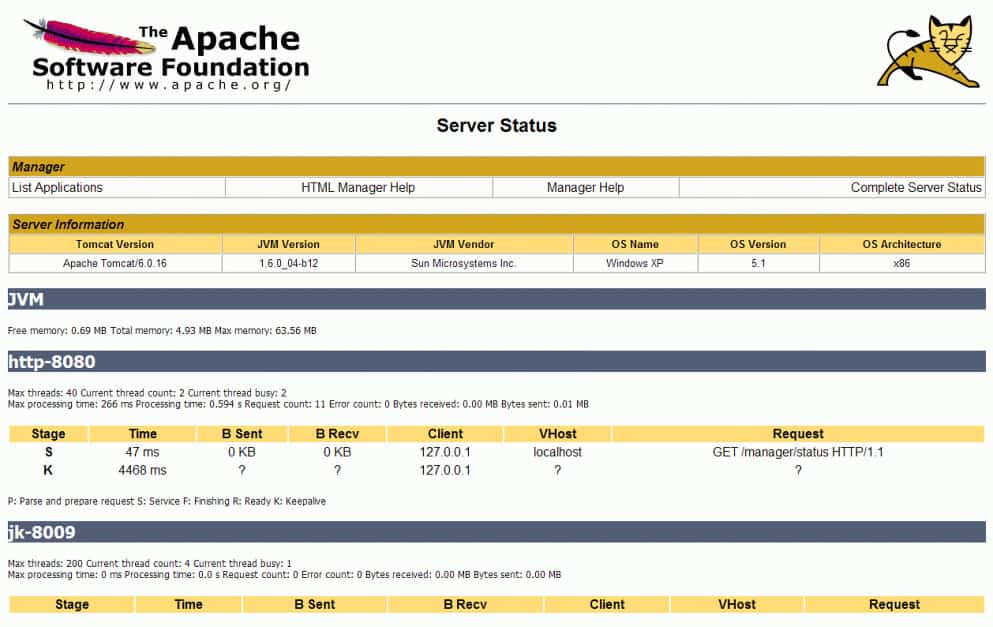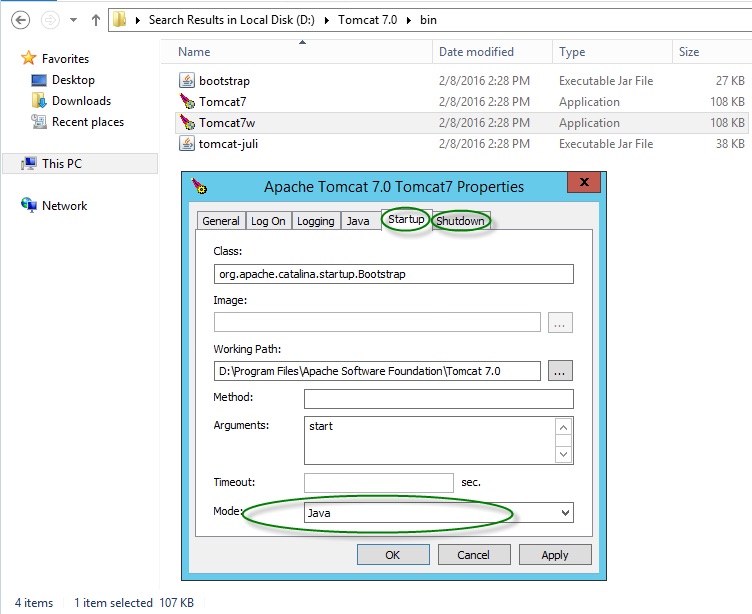

If this file is never modified, you can find the following section: You can open the "server.xml" file with any text editor. In the Tomcat installation folder, you can find the "server.xml" file in the "conf" folder.
#Apache tomcat 7.0.55 how to#
How to Configure Tomcat to Use the Key Storeĭepending on the version of the Tomcat, the configuration may be slightly different, but it should be almost the same. If you need to set up a production web site, I believe you should be able to get help from a certificate authority, because they want your business and money. In this article, I am not going to talk about the signing of the key.

How to Sign the Key by a Certificate Authority In my case, I saved it as "C:\Keystores\Stores\TestKeyStore.keystore". We can then select a desired folder location and give a name to save the key store file. In my case, I simply use "localhost" as the alias of the key pair. It is a good idea to simply use the value chosen for the "Common Name (CN)" field as the alias.
#Apache tomcat 7.0.55 password#
It will ask us a password for the key pair in the key store and a password for the key store file itself.When saving the key store, the keystore explorer will ask us the following information: Although it is not absolutely necessary, it is good if you give it the value that matches the host name of your web site. You should pay some attention to the "Common Name (CN)" field. We can then fill in the required information to complete the generation of the key pair. Select the "RSA" algorithm, the key size and click the "OK" button to continue. Right click on the blank section of the empty key store to bring up the context menu and click on "Generate Key Pair" to add a key pair into the empty key store. We can then select the "JKS" type and click the "OK" button to generate an empty key store.

To generate a key store file, we can click the "File" -> "New" from the keystore explorer menu. The version of the keystore explorer used in this example is "kse-51".
#Apache tomcat 7.0.55 download#
You can download the keystore explorer from this link. But I prefer the more user-friendly GUI keystore explorer. The JDK comes with the " keytool.exe" to manage the key stores. A key store is a file that contains the encryption key pairs used to initiate the https communication. To configure Tomcat to use https, we need to first create a key store. I will show you how to accept the development certificate when you develop and debug your applications.Ĭonfigure Tomcat to Use Https How to Create a Key Store In the development environment, the certificate used set up the https is normally not signed by a certificate authority.How to import a multi-module Maven project into Eclipse.In this example, I will address the following topics: You may find that it is nice to have a good development and debug environment to work on these applications. This article presents an example on consuming https web content using Apache HttpComponents HttpClient in the development environment in Eclipse.

Normally web content should be consumed through the web browsers, but it is not uncommon that you may want to consume them in your applications using the Apache HttpComponents HttpClient. This article presents an example on consuming https web content using Apache HttpComponents HttpClient in the development environment in Eclipse.


 0 kommentar(er)
0 kommentar(er)
